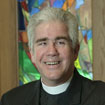Commentary on Matthew 2:1-12
God is so determined to proclaim the “good news of great joy for all the people” (Luke 2:10) that God reaches beyond fields in the region around Bethlehem to “the East” (some scholars say Persia).
God reaches beyond shepherds at the bottom of the barrel to Wise Ones at the top. God reaches beyond people scared witless by God’s glory to those who observe the glorious star at its rising, and methodically, persistently, and sincerely follow it to a king. All along the way, God directs them, first by a star, then via a verse from Micah, and finally in their dreams.
Yes, I am aware that I am conflating Matthew and Luke; this is precisely what the liturgical year does as well. Preachers overly concerned about biblical literacy might use this occasion to untangle the Christmas story in order to teach that the Magi never made it to the manger. But then the preacher needs to explain that Matthew makes no mention of a manger. Better to save this for Sunday School and preach the Epiphany gospel in its liturgical and calendar context.
That said, at our house and in the congregations where I’ve served as pastor, we move our Magi from windowsill to windowsill during the days of Christmas, rather than placing them in the crèche on Christmas Eve, and only bring them to “the house [where] they saw the child with Mary his mother; and they knelt down and paid him homage” (Matthew 2:11) on Epiphany. Placing the Magi in the manger on Christmas Eve misses how far God reaches to ensure that all people — emphasize all — receive the good news of Christ’s birth.
While Christian tradition holds that the Magi were kings (an interesting contrast between these kings’ response to Jesus’ birth and the way Herod, king of God’s people, responded), a more precise description might be that the Magi belonged to the priestly caste of Zoroastrianism, which paid particular attention to the stars. This priestly caste gained an international reputation for astrology, which was at that time highly regarded as a science.
So these Wise Ones from the East were scientists and practiced other religions, and God used their faith and knowledge to bring them to the Christ. More ironic, God used scientists who practiced other religions to let King Herod and the chief priests and scribes of the people in on the news that their Messiah had been born.
God seems to do whatever it takes to reach out to and embrace all people. God announces the birth of the Messiah to shepherds through angels on Christmas, to Magi via a star on Epiphany, and to the political and religious authorities of God’s own people in through visitors from the East. From a manger, where a child lies wrapped in bands of cloth, God’s reach, God’s embrace in Christ Jesus, gets bigger and bigger and bigger. Jesus eats with outcasts and sinners. Jesus touches people who are sick and people who live with disabilities. Jesus even calls the dead back to life. Ultimately, Jesus draws all people to himself as he is lifted up on the cross. In Christ Jesus, no one is beyond God’s embrace.
God’s radical grace is wondrously frightening. I experience a bit of a shudder as I think of the implications of portraying the Magi as scientists who practiced another religion, because to do so pushes me to expand my understanding of both the ways God reaches out to people to announce good news in and through Christ and what it means for individuals to have faith and for gatherings of the faithful to be church.
The Magi did not come looking for the Christ through preaching, liturgy, sacrament, a welcoming congregation, or a vital social ministry — things I hold dear. They came seeking the Christ after studying the night skies. As someone who holds on to favorite, cherished ways that God works to proclaim the gospel and bring people to faith, it’s always wondrously frightening to realize anew that God’s own work of embracing all people is more “mystery” than “formula,” because God’s ways are always bigger than my understanding. It’s much safer to spend the sermon piously and sentimentally embellishing the Magi and reading meaning into the number and kind of gifts they bring.
Yet, if I am honest with myself, these days I sense God reaching out to embrace me in new ways. God is using late Saturday nights spent metaphorically studying the stars to lead me to Christ, more than early Sunday mornings spent sitting in church. Even as I write these words, I worry about a phone call from my bishop warning me that I am in trouble for saying this out loud. A sermon that leaves me basking in the light of Christ’s star, rather than worrying about the implications of the Magi coming to faith apart from the church or outside our formulaic approaches of how faith happens, would be really good news.
The alternative, of course, is to join Herod in not seeing God’s ever-expanding embrace, or feeling threatened by it, and instead giving way to just plain fear: “When King Herod heard this, he was frightened, and all Jerusalem with him” (Matthew 2:3). Herod jealously reached out himself, just far enough to violently protect his place and preserve his power.
We too can feel jealous when visitors show up seeking Christ due to experiences outside of our purview and control. We have our own ways of reaching out, just far enough to slaughter someone’s experiences of God’s grace for the sake of our patterns, practices, and perspectives. And so the stage is set for another liturgical year of proclaiming Christ overcoming the conflict between God’s ever expanding embrace and our need to protect and preserve, a drama resolved on the cross and continuing in our day.

January 6, 2013